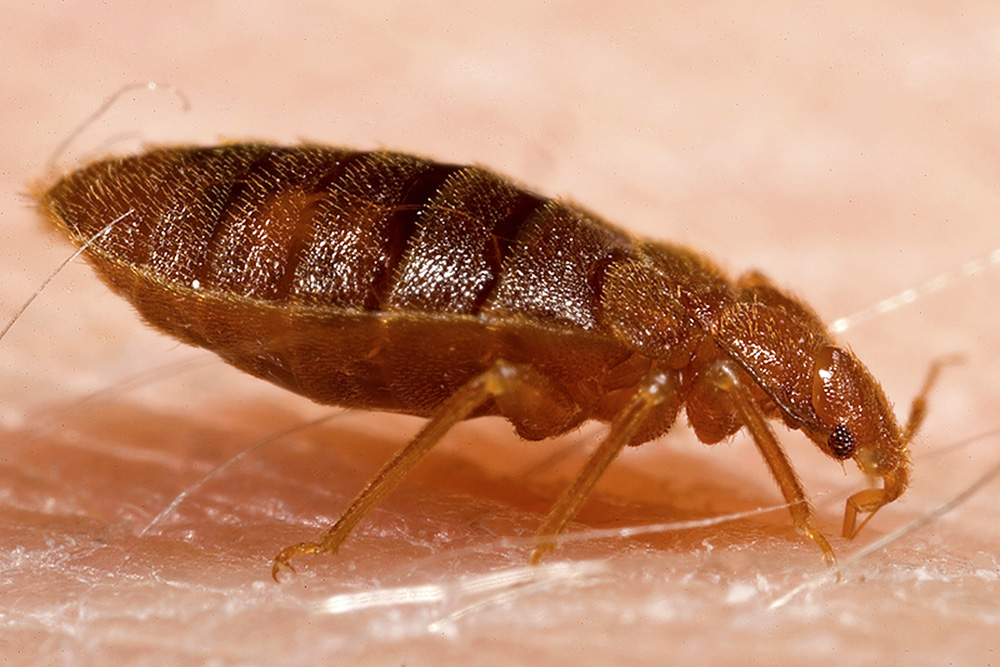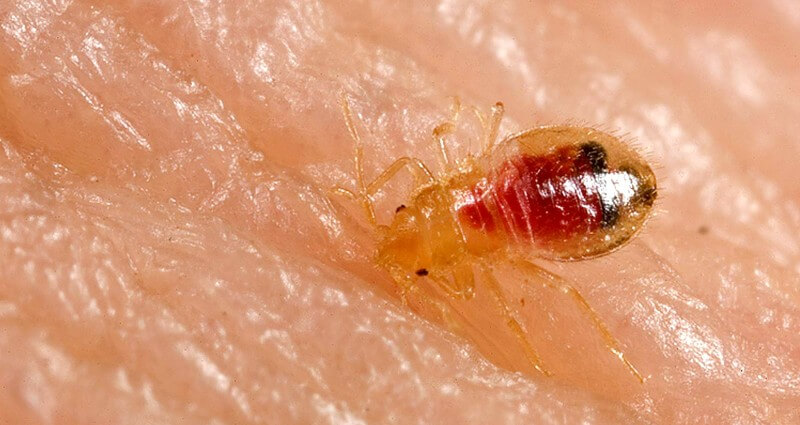Kings Bed Pest Exterminator Cincinnati: Pro Pest Solutions
Kings Bed Pest Exterminator Cincinnati: Pro Pest Solutions
Blog Article
A Breakdown of the Numerous Kinds Of Pest Control Solutions
In the world of insect control, a wide variety of techniques exist to attend to and battle the presence of unwanted animals. From the traditional use of chemical pesticides to more cutting-edge organic control options, each method provides distinctive advantages and constraints. As we navigate through the varied landscape of pest control services, understanding the details of each technique becomes extremely important in identifying the most effective strategy. Remain tuned as we check out the nuanced globe of pest control strategies and find exactly how each type plays an one-of-a-kind duty in securing our atmospheres.
Chemical Pesticides
Chemical chemicals are generally made use of in bug control to effectively remove a large range of bugs and other bugs. These chemicals work by targeting the nerve system of the parasites, disrupting their regular functions, and ultimately leading to their death. Using chemical pesticides has been a staple in the pest control market for years as a result of their effectiveness and quick outcomes.

Nonetheless, it is necessary to use chemical pesticides with care as a result of their potential dangerous effects on the setting and non-target types. Inappropriate application or overuse of these chemicals can bring about contamination, damage to useful bugs, and resistance development in pest populaces. For that reason, it is vital to comply with safety and security guidelines and policies when making use of chemical pesticides for pest control.
Biological Control Approaches
Thinking about the possible environmental impacts and risks connected with chemical pesticides, biological control approaches provide an even more sustainable technique to taking care of parasite populaces. Biological control involves using natural enemies, such as virus, predators, and parasites, to subdue pest populations. This method is typically more targeted, influencing only the specific parasite species while minimizing damage to beneficial insects, people, and the environment.

One benefit of organic control is its long-lasting performance. Once developed, all-natural enemies can help regulate pest populaces continually without the need for repeated applications of chemicals. Additionally, biological control is usually a lot more cost-efficient and can help in reducing chemical resistance in parasite populaces over time. On the whole, organic control approaches use a sustainable and eco-friendly option to pest management.

Mechanical Pest Control
Mechanical insect control involves the physical manipulation or elimination of insects to handle their populaces successfully. This method is frequently employed along with various other bug control techniques for extensive bug administration. One common example of mechanical pest control is useful reference using traps to capture rodents or pests. These traps can be established up in tactical places where bugs are known to dwell, helping to decrease their numbers.
One more mechanical approach is using obstacles such as displays, fences, or nets to obstruct pests from getting in specific areas. By physically stopping bugs from accessing a place, the probability of problems or damage can be considerably reduced. In addition, manual approaches like handpicking pests off plants or frameworks can be efficient for smaller-scale problems.
While mechanical pest control approaches can be labor-intensive, they provide a non-chemical option that can be sustainable and eco pleasant. By targeting insects directly, mechanical control techniques can aid keep bug populaces in check without relying upon pesticides.
Natural Treatments
Utilizing natural remedies for bug control provides a environment-friendly and lasting strategy to handling pest populations without resorting to chemical treatments. Natural remedies include making use of compounds acquired from plants, minerals, or other naturally taking place sources special info to discourage or remove insects.
In addition, vital oils such as tea tree oil or neem oil have insecticidal homes that can properly control insects while being secure for the setting. Another natural treatment is presenting beneficial bugs like ladybugs or hoping mantises to your yard to take advantage of dangerous pests. By incorporating these natural options right into parasite monitoring strategies, individuals can decrease their reliance on synthetic chemicals and advertise a much healthier, extra well balanced ecosystem.
Integrated Pest Management
Integrated Insect Administration (IPM) is a detailed strategy that incorporates numerous approaches to properly regulate pest populaces while reducing dangers to human health and wellness and the atmosphere. IPM includes the combination of multiple pest control methods such as pop over to this site organic control, environment adjustment, adjustment of social techniques, and using resistant crop ranges. By utilizing a combination of these strategies, IPM aims to minimize dependence on chemical pesticides, which can have unfavorable effect on environments and human health and wellness.
One key aspect of IPM is the focus on avoidance. By executing steps to avoid parasite problems before they occur, such as keeping appropriate sanitation and securing entrance points, the demand for responsive insect control measures is decreased. Tracking and regular examinations play a critical function in IPM, permitting very early detection of parasite problems and prompt treatment.
Conclusion
In conclusion, the different kinds of bug control solutions provide a variety of alternatives for effectively managing insect problems. Biological control techniques use all-natural killers to regulate parasites. Integrated Pest Administration integrates numerous approaches for a holistic approach to pest control.
Chemical pesticides are typically utilized in insect control to successfully get rid of a large array of pests and various other bugs.Mechanical insect control includes the physical control or removal of insects to manage their populations efficiently (Kings pest control cincinnati oh).Making use of all-natural treatments for insect control offers a environmentally friendly and sustainable method to handling insect populations without resorting to chemical treatments.Integrated Bug Administration (IPM) is an extensive approach that incorporates numerous methods to efficiently control pest populaces while reducing dangers to human health and wellness and the environment.In verdict, the different types of parasite control options offer an array of choices for effectively handling insect problems
Report this page